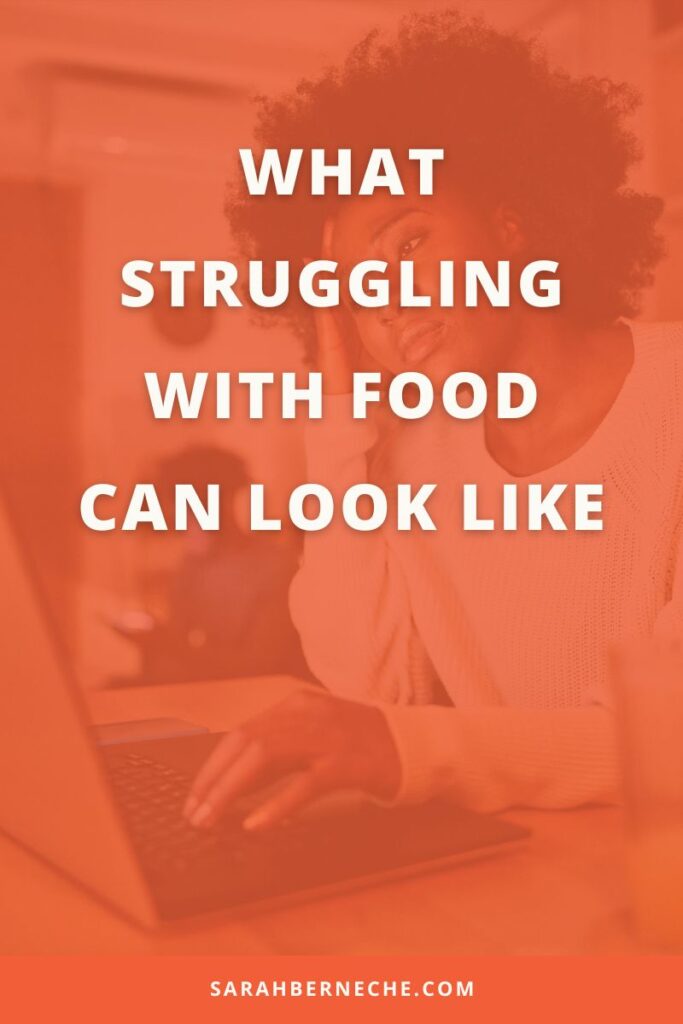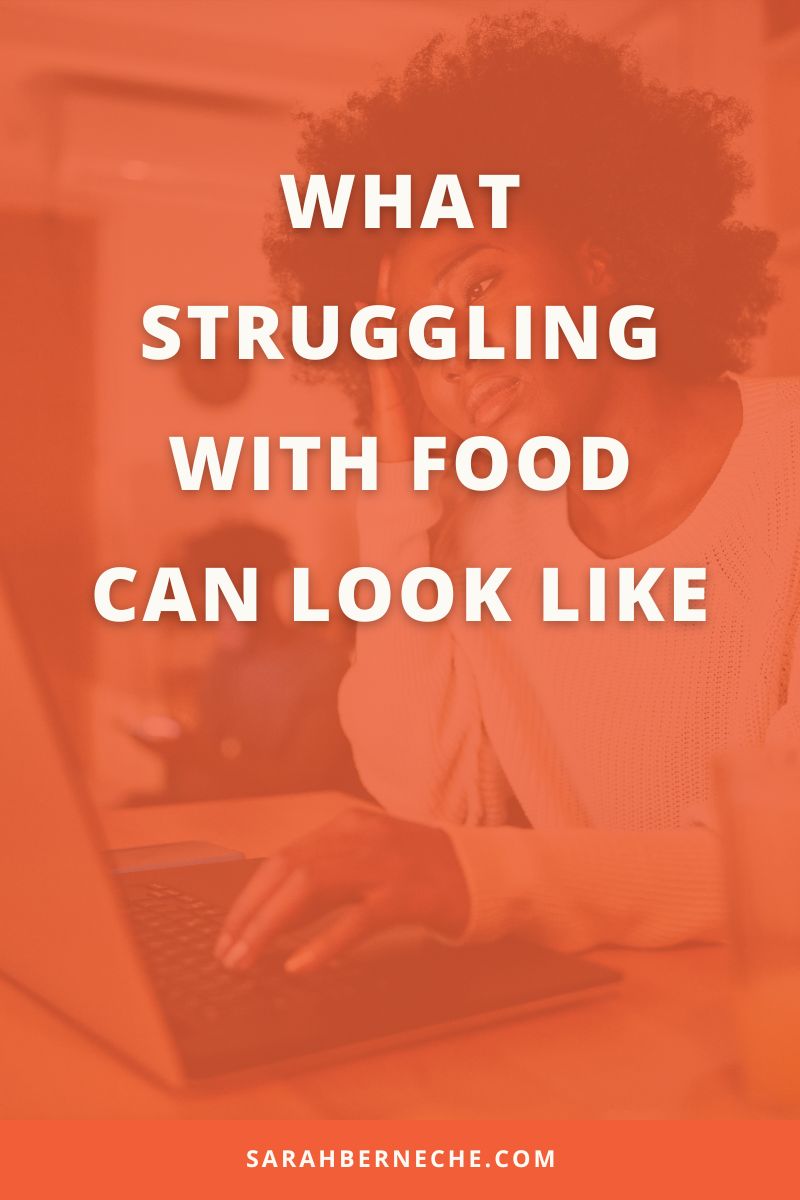CW: talk of restrictive food behaviours
Please note: this post is for informational purposes only.
In The Guardian, Taylor Swift opens up about her experience with disordered eating. What stood out to me was the confusion she experienced while coming to terms with the reality of her condition. “I don’t think you know you’re doing that when you’re doing it gradually,” she says.
“You don’t ever say to yourself, ‘I’ve got an eating disorder.’ But you know you’re making a list of everything you put in your mouth that day. And you know that’s probably not right. But then again, there are so many diet blogs that tell you that that’s what you should do.”
Sound familiar?

Like Taylor Swift, maybe you’ve questioned whether you struggle with food.
Diet culture is exceptionally talented at creating food and body image problems and positioning itself as the solution to those problems…all while convincing you that you (and your body) are the problem.
Maybe you believe, like author Jessica Knoll once did, that being “good” with food one day — only to be “bad” with food the next — is what balanced eating looks like.
Maybe like Jordan Fisher, you were diagnosed with an eating disorder that you didn’t know you had.
I’ve worked with people struggling with eating problems in multiple settings, including mental health clinics, a private eating disorder outpatient centre, and private practice. Unfailingly, clients have come to me wondering whether they were “sick enough” to need help. “I feel like I’m being dramatic. Maybe I’m making a big deal out of nothing,” many have said to me in various ways over the years.
If you’ve ever Googled, “Do I have a problem with food?” late at night after another binge — followed by promises to get “back on track” come Monday — please know you’re not alone.
So, what are some signs that you might be struggling with food?
You think about food all the time
Like with any basic need, you’ll need to think about food at least some of the time. Putting together a grocery list, meal planning, deciding on a restaurant or take-out venue, and thinking about how you’ll squeeze lunch before an afternoon of meetings are all examples where it makes sense to think about food.
But thinking about food all the time is often an illuminator. Almost everyone I work with spends a lot of time thinking about food outside of meal and snack times. For example, maybe you deal with “food noise” from the moment you wake up until you go to sleep, mentally tallying what you’ve eaten throughout the day. You might think about what you’ll have for lunch before you’ve finished breakfast, or bring up food and your body size often in conversations.
You may also believe that there are “good” foods and “bad” foods, and experience guilt or shame after eating something you deem “forbidden.” You may engage in a lot of comparison, judging how much to eat based on what those around you are consuming. When it comes to food, you feel stressed and uncertain, as though you don’t know what to eat anymore.
You eat very “carefully.”
Because the term “dieting” is no longer in vogue, you may be more likely to call yourself a “clean eater,” “healthy eater,” or someone who’s just really “careful” with food. Isn’t being mindful or intentional of what you’re eating a sign of good health, you ask? While there are benefits to paying some attention to what you eat to ensure you’re getting the basics, there’s a difference between being intentional with your choices as a form of self-care and being afraid of food.
Some “careful” eaters may develop Orthorexia, an “unhealthy obsession with healthy eating” coined by Steven Bratman, MD, in 1997. Orthorexia is not an officially recognized eating disorder, but it can progress into Anorexia Nervosa, primarily when an increasing number of foods are eliminated.
Many careful eaters are very concerned with the alleged cleanliness of certain foods. You may find yourself cutting out or avoiding certain foods or food groups without a legitimate medical or ethical reason, such as gluten, grains, legumes, dairy, or sugar. While I’ll be the first to acknowledge that skipping milk or going without gluten doesn’t necessarily mean you’re struggling with food — lactose intolerance and Celiac Disease exist — many people can consume these foods (at least to some degree) without issues.
You may also struggle with food if you deny yourself seconds even when you’re still hungry or unsatisfied. Many careful eaters tend to determine how much they’ll eat in advance of a meal, regardless of what their body is telling them. This can lead many to stop eating in the absence of hunger rather than at adequate fullness and satisfaction — a more subtle form of under-eating.
You may also regularly substitute grains and starches for vegetable-based alternatives, viewing zucchini noodles as superior to pasta. While cauliflower gnocchi, spiralled butternut squash, and so on can be fun ways to eat your vegetables, you would need to eat a lot of them to meet your carbohydrate needs. Grains and starches can also be highly nutritious, providing the body with essential micronutrients.
Careful eaters may also avoid certain foods or food groups entirely without really knowing why, such as sweets or fried food, and feel panicked or anxious at even the thought of breaking a rule.
You constantly crave sweets.
First things first: it’s normal to crave sweets sometimes. Even “advanced” Intuitive Eaters still enjoy cookies, cake, and chocolate — some of the joys of life. Diet culture unfairly demonizes the desire for sweets and makes it seem as though the “right amount” of sugar is none. The truth is that having something sweet at the end of a meal can offer closure and support satisfaction. And your body is very capable of metabolizing sugar (even folks with clinical blood sugar issues don’t need to avoid sugar altogether).
At the same time, non-stop sugar cravings may mean something else — and I don’t mean sugar addiction. Constantly craving sweets can tell you’re struggling with food for a few reasons. Feeling out of control around sweets is often a sign you’re not eating enough (either at a meal or overall), aren’t eating enough carbohydrates for your body, or that you’re restricting your consumption of sweets physically or emotionally, since intermittent access to sweets is highly linked to feeling out of control around them.
If you always crave sweets after a meal, it might be worth looking at whether your meals are rich enough in carbs and sufficiently satisfying. For example, you might find that you crave a cookie more after having a meal that’s low in carbohydrates, such as a salad with chicken, than after a meal with all the food groups present.
You’re also more likely to experience stronger sugar cravings on a low-carb diet than a balanced diet simply because there’s a greater risk of not getting enough of this macronutrient to fulfill your body’s needs.
It’s also possible to feel out of control around sweets if you struggle with untreated blood sugar issues (e.g. insulin resistance, PCOS, Diabetes) and other issues outside of the scope of this post.
You track what you eat.
Let me give it to you straight up: you don’t need to track what you eat. I do think it can be helpful, at times, to be calorie-aware to make sure you’re eating enough. There are plenty of frozen dishes out there marketed as a “meal” when they only have enough nutrition for a snack. Understanding the difference between food volume and food density may also be helpful.
But regularly tracking your food can be a sign of food struggles. For one thing, the app I’ve seen normalizes under-eating. The calorie ranges are almost always way too low. Apps also disconnect you from your hunger and fullness cues. Do you find you’re still hungry at the end of the day? Or that you’re full and don’t want anything else, but you haven’t met your protein quota? Many people who struggle with food often log their food in an attempt to control their eating and their weight, which can lead to more guilt and shame when they ultimately eat beyond their macros for the day.
You weigh yourself regularly.
Another sign you might be struggling with food? You weigh yourself regularly, especially if there’s a lot of emotion around the number.
As many people in the non-diet community will say, the scale can’t tell you anything specific about your health. While weight is a data point, it’s just that — one point (and a relatively meaningless one at that.)
I subscribe to the set-point theory, or the concept that there’s a weight range your body likes to be at and will fight to defend. It defends more fiercely against a lower weight than against a higher one simply because — contrary to popular opinion — going below your natural set point carries greater health risks.
Most normal eaters have a relatively stable weight range within which they fluctuate. On the contrary, if you struggle with food, you may experience weight cycling (defined as losing and gaining 5% or more of your body weight) and use the scale as one tool to manipulate your size.
In my practice, your thoughts and behaviours carry more meaning to me than your appearance. I believe your body will arrive at its natural weight when the focus is placed on things outside of the number — like eating enough food, eating a balance of foods, getting enough rest, moving in sustainable and enjoyable ways (if available and desired), supporting nervous system flexibility, getting enough fluids, and so on.
Given how normalized dieting and disordered eating behaviours are in our culture, it can be tough to know whether you’re struggling with food or just “really into health.” Many behaviours, such as never skipping a workout (even when you’re sick or exhausted), under-eating, and substituting perfectly nutritious grains for vegetables, are praised and encouraged.
It doesn’t help that most movies about eating disorders perpetuate the dangerous myth that only emaciated, white women struggle with food, implying that your behaviours are only worrisome if you look like you’re on death’s door.
94% of those who meet clinical criteria for an eating disorder do not have a medically underweight BMI, and most people who struggle with food will not meet it, either. In that case, we need to look beyond body size as an indicator of health status.
What else would you add to my list?

Comments +